This easy-to-make gluten-free sandwich bread is soft, fluffy, and perfect for sandwiches or toast. Using an all-purpose gluten-free flour blend as the main ingredient, it’s ideal for those with celiac disease or gluten sensitivity. The recipe is dairy-free, accommodating additional dietary restrictions, and avoids preservatives found in commercial breads, offering a fresher, healthier option.
Ingredients
| Ingredient | Quantity | Notes |
|---|---|---|
| All-purpose gluten-free flour | 2 1/2 cups (e.g., Pillsbury gluten-free) | Use a blend suitable for yeast baking |
| Xanthan gum | 1 tsp | Omit if flour blend includes it |
| Gluten-free baking powder | 1 tsp | Ensures proper rise |
| Rapid rise/instant yeast | 1 packet (2 1/4 tsp) | Room temperature, e.g., Fleischmann’s |
| Extra virgin olive oil | 1/4 cup | Adds healthy fats |
| Honey | 1/4 cup | Can substitute with agave nectar or maple syrup |
| Apple cider vinegar | 1 tsp | Enhances structure |
| Warm water | 1 1/2 cups (100-110°F) | Activates yeast |
| Egg whites | 3 (from large eggs) | Room temperature, adds protein |
| Salt | 1 tsp | Enhances flavor |
Equipment
- Stand mixer with paddle attachment
- 9-inch x 5-inch bread pan or 9-inch x 4-inch small Pullman loaf pan
- Plastic wrap
- Kitchen towel
- Oven
- Cooling rack
- Serrated knife
Preparation Time
- Preparation: 10 minutes
- Rising: 30 minutes
- Baking: 30 minutes
- Total: 1 hour 10 minutes
Instructions
- Prepare the Pan and Oven: Spray a 9-inch x 5-inch bread pan or 9-inch x 4-inch small Pullman loaf pan with gluten-free cooking spray. Move the top oven rack to the middle position and preheat the oven to 350°F (175°C).
- Mix Dry Ingredients: In a large bowl, combine 2 1/2 cups all-purpose gluten-free flour, 1 tsp xanthan gum (if needed), 1 tsp gluten-free baking powder, and 1 packet (2 1/4 tsp) rapid rise/instant yeast. Stir thoroughly to combine.
- Add Wet Ingredients: Add 1/4 cup extra virgin olive oil, 1/4 cup honey, 1 tsp apple cider vinegar, and 1 1/2 cups warm water (100-110°F) to the dry mixture.
- Mix the Dough: Using a stand mixer with the paddle attachment, mix on low speed for 1 minute to combine.
- Incorporate Egg Whites and Salt: Add 3 egg whites and 1 tsp salt, then mix on medium speed for 1 minute. The dough should resemble thick cake batter.
- Transfer to Pan: Pour the dough into the greased bread pan, smoothing the top if necessary.
- Cover and Rise: Cover the pan with plastic wrap sprayed with cooking spray, then drape a kitchen towel over it. Let the dough rise in a warm, draft-free place for 30 minutes until it increases by about 50%.
- Bake the Bread: Place the pan on the middle oven rack and bake for 30 minutes, or until the bread is golden brown and the internal temperature reaches 205-210°F (96-99°C).
- Cool the Bread: Allow the bread to cool in the pan for 10 minutes, then transfer to a cooling rack to cool completely before slicing with a serrated knife.
- Storage: Store in an airtight container at room temperature for up to 3 days. For longer storage, wrap tightly in plastic wrap, foil, or freezer paper, place in a freezer bag, and freeze for up to 3 months. Thaw in the refrigerator overnight before use.
Nutritional Information (Per Serving, 1 Slice)
| Nutrient | Amount | % Daily Value* |
|---|---|---|
| Calories | 114 kcal | 6% |
| Carbohydrates | 18 g | 7% |
| Protein | 3 g | 6% |
| Fat | 4 g | 5% |
| Saturated Fat | 0.5 g | 3% |
| Sodium | 189 mg | 8% |
| Fiber | 2 g | 8% |
| Sugar | 5 g | – |
| Calcium | 29 mg | 2% |
| Iron | 1 mg | 6% |
Note: Nutritional values are approximate, based on the ingredients and brands used, and calculated for a 2,000-calorie daily diet.
Health Benefits
- Gluten-Free: Essential for individuals with celiac disease or gluten sensitivity, this bread allows them to enjoy sandwiches and toast without digestive issues or other symptoms associated with gluten consumption.
- Dairy-Free: Suitable for those with lactose intolerance or dairy allergies, broadening its accessibility for those with multiple dietary restrictions.
- Healthy Fats: Extra virgin olive oil provides monounsaturated fats, which may support heart health by improving cholesterol levels.
- Natural Sweetener: Honey offers a natural source of sweetness and may provide minor antioxidant benefits compared to refined sugars.
- Protein Contribution: Egg whites add a small amount of protein, supporting muscle maintenance and satiety.
- No Preservatives: Being homemade, this bread avoids artificial additives and preservatives common in store-bought gluten-free breads, offering a fresher, cleaner option.
- Customizable Nutrition: The recipe can be enhanced by using gluten-free flour blends with whole grains (e.g., brown rice flour) or adding seeds like chia or flax to increase fiber and omega-3 content, further supporting digestive and cardiovascular health.
Tips
- Flour Selection: Use an all-purpose gluten-free flour blend designed for yeast baking, such as Pillsbury gluten-free flour. Avoid blends like Bob’s Red Mill 1:1 or King Arthur Measure for Measure for this recipe, as they may not yield optimal results.
- Yeast Activation: Ensure water is between 100-110°F to activate the yeast without killing it. Use a thermometer for accuracy.
- Rising Environment: Place the dough in a warm, draft-free area (e.g., near a warm oven) to ensure proper rising.
- Enhancements: Add seeds (e.g., chia, flax, or sesame) for extra fiber and nutrients, or experiment with herbs for flavor variations.
- Storage: For best freshness, slice only what you need and freeze the rest to maintain texture and flavor.
This gluten-free sandwich bread is a versatile, healthy option that brings the joy of fresh bread to those with dietary restrictions. Enjoy it with your favorite spreads or sandwich fillings!

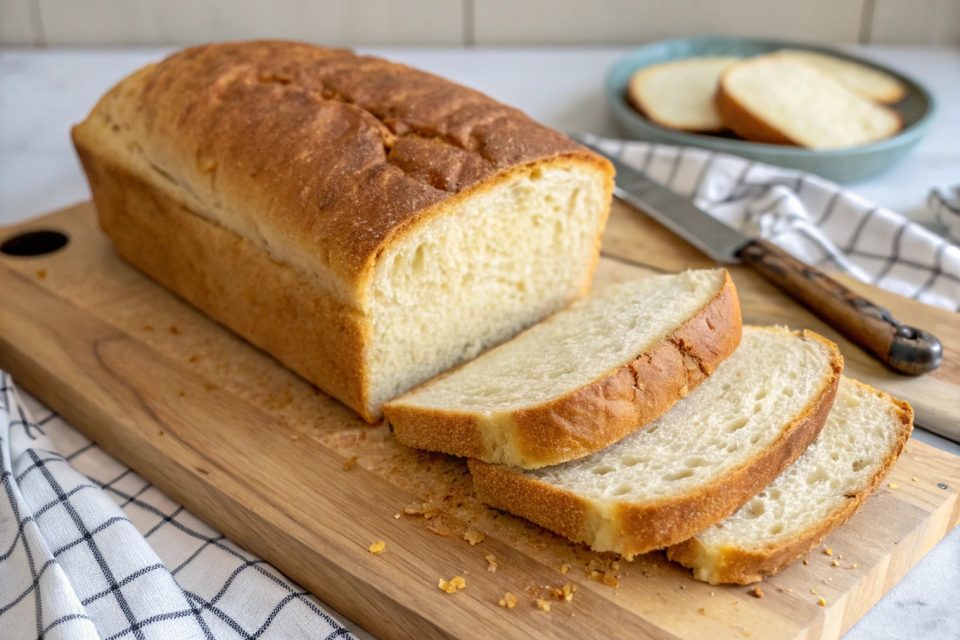
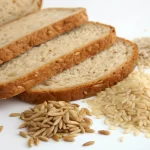
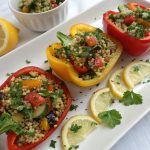
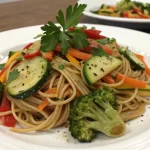
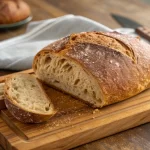

0 comments on “Gluten-free sandwich bread”Add yours →